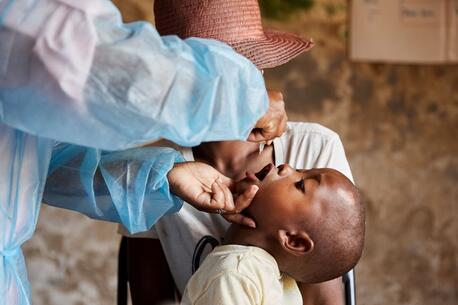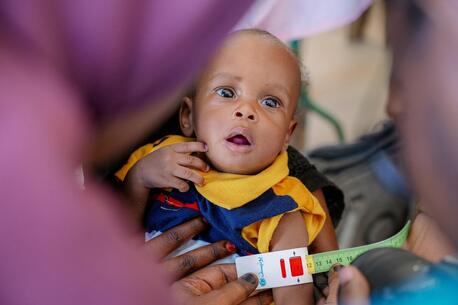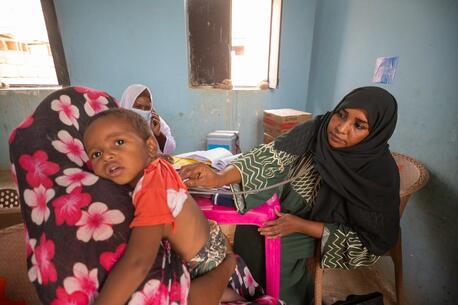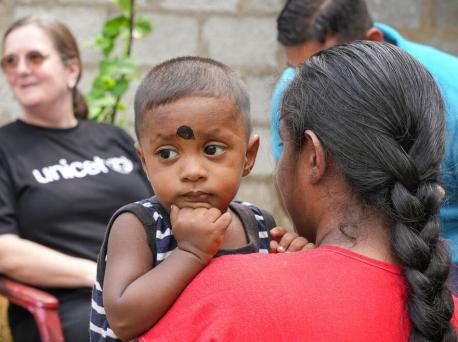
Crisis in Sri Lanka
The people of Sri Lanka continue to suffer the effects of a severe economic crisis that began in early 2022.
With soaring food prices, 70 percent of households are struggling to feed their children — and have little left over for much else. Even before the current crisis hit, the small island nation off India's southeastern coast had the second-highest child malnutrition rate in South Asia.
Fuel shortages and frequent power cuts at the height of crisis greatly interfered with vital services like health care and education. While conditions had slightly improved by mid 2023, both sectors continue to struggle to deliver for all children.
Access to safe water for drinking, cooking and cleaning is also an issue, especially in poor communities, heightening risks of waterborne illnesses. Malnourished children are more susceptible to illness.
UNICEF estimates there are over 6 million people in Sri Lanka in urgent need of humanitarian assistance. That number includes over 2.9 million children — roughly 28 percent of the population.
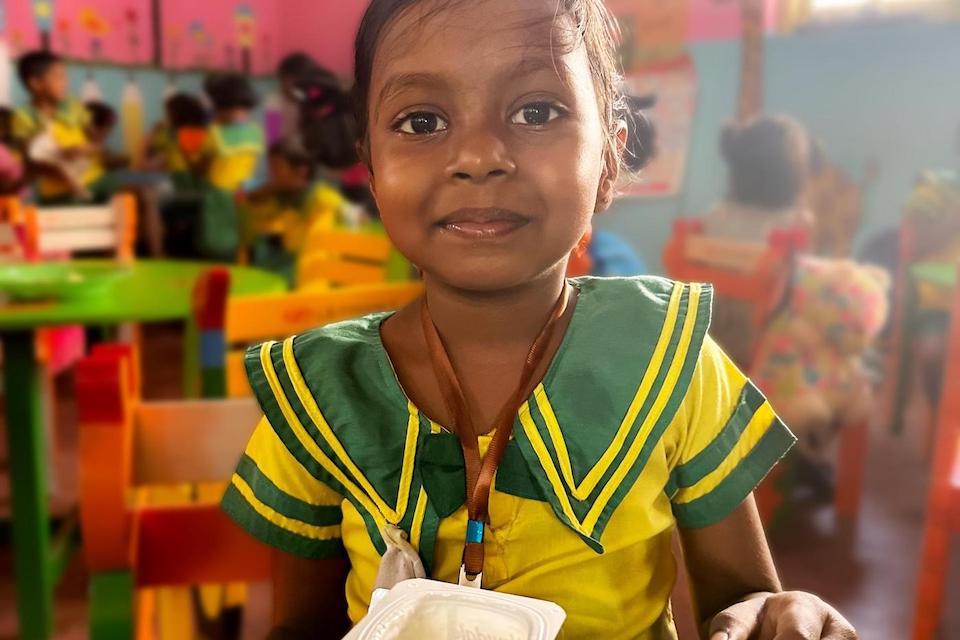
How UNICEF is helping children in Sri Lanka
With over 50 years of experience in the country, and with its vast network of partners, UNICEF is leading humanitarian efforts aimed at ensuring previous development gains are not lost.
Working through existing systems and applying community-based approaches, UNICEF focuses on improving access to basic social services. This helps reduce pressures that often lead families to resort to negative coping strategies, such as child marriage and child labor.
In collaboration with the government, civil society organizations and others, UNICEF is implementing programs and interventions that address both short- and long-term needs.
Priorities include:
- improving nutrition — which helps reduce other risks to children's health — and treating kids suffering from malnutrition; these efforts included improving distribution of Ready-to-Use Therapeutic Food through outreach clinics
- partnering with local NGO Sarvodaya to establish or strengthen over 250 village-level health promotion committees across the country to sustain good health and nutrition practices
- shoring up maternal and newborn health services that have been impacted by critical shortages of medicines
- facilitating COVID-19 vaccination services, contributing to 67 percent of the population receiving both doses by the end of November 2022
- improving the supply of safe drinking water, sanitation services and hygiene support, particularly in rural and estate areas; this includes providing WASH facilities in maternal and child health clinics and helping to complete water projects that have been on hold due to lack of government funding
- conducting menstrual health and hygiene programs in poor urban settlements targeting adolescents
- helping schools reopen and stay open, and making sure there are mental health and psychosocial support services available in schools and in communities
- supporting social protection services that safeguard children's rights — including cash transfers that provide critical financial support to pregnant women, mothers and other caregivers of young children
- supporting parents with online resources promoting child protection and holistic care
Easing the impacts of Sri Lanka's economic crisis on child nutrition
In early 2023, government assistance to impoverished families dwindled due to financial constraints brought on by the economic crisis. In response, UNICEF increased humanitarian cash transfers to help families cover the cost of more expensive food items like eggs, meat, fish, fruits and vegetables, which had become prohibitively expensive for so many, yet are important to ensure a diverse and nutritious diet.
The cash payments are given along with information about what to buy and other tips for supporting children's healthy growth and development.
UNICEF is also helping to extend a government program that provides cash vouchers to pregnant women. The support helps cover the cost of prenatal vitamins and higher-priced grocery items needed to prevent anemia and other vitamin deficiencies known to put the health of both mother and baby at risk.
Helping students continue their education — and bringing back the school meal
Many schools that had closed during the height of the COVID-19 pandemic closed again for several months in 2022 — another ripple effect of the economic crisis, as fuel shortages meant buses couldn't run, operating costs surged and textbooks and other school supplies grew scarce. UNICEF supports teachers and schools so that learning can continue uninterrupted.
When a well-balanced school meal is provided, that helps drive attendance, while improving nutrition and general well-being of students. With that in mind, UNICEF is also helping to expand a preschool feeding program. With funding support from partners, UNICEF has reached tens of thousands of children in hundreds of preschools across three districts.
With a presence in over 190 countries and territories, UNICEF is committed to creating a more equitable world where every child can be healthy, educated, protected and respected. Unrestricted donations help UNICEF stay nimble and responsive when crises occur. Help increase UNICEF's impact for children. Donate today.

